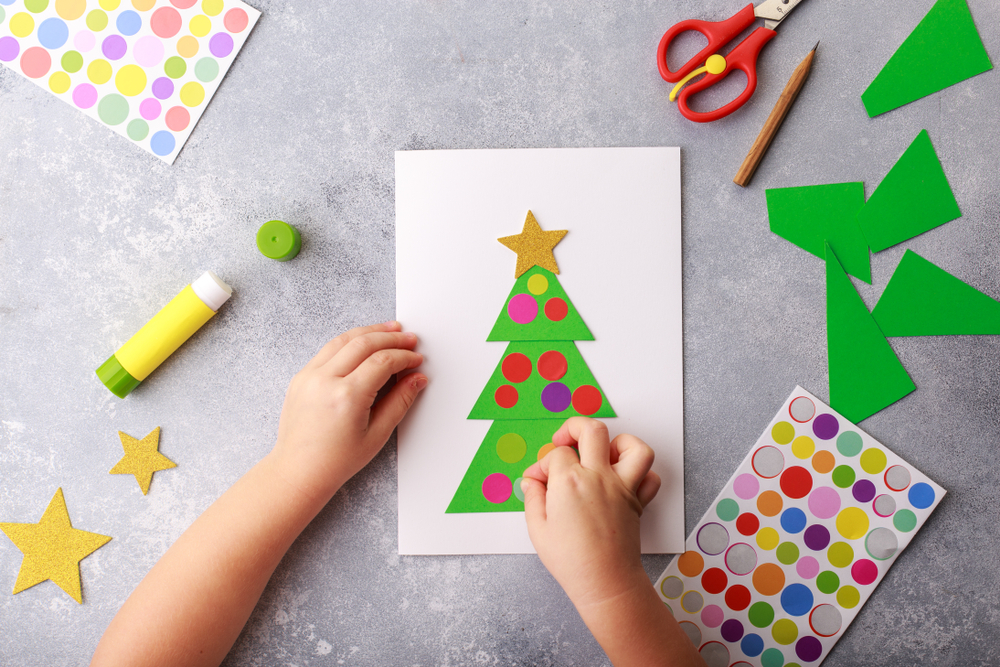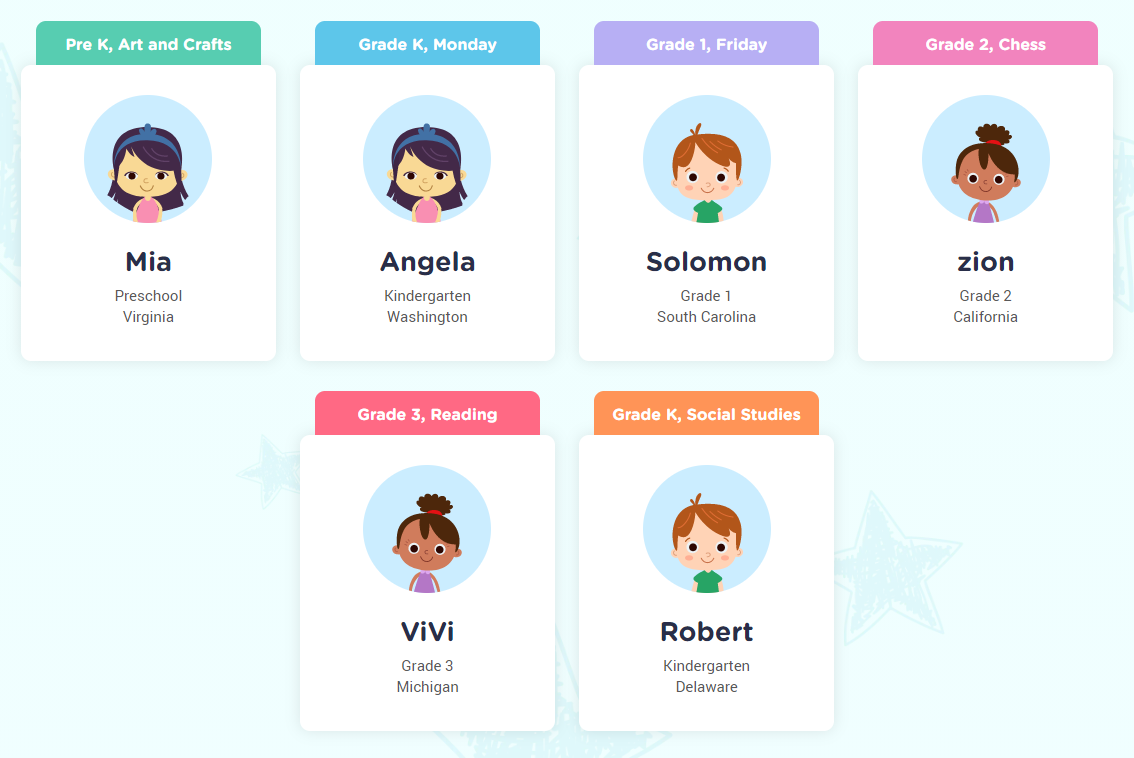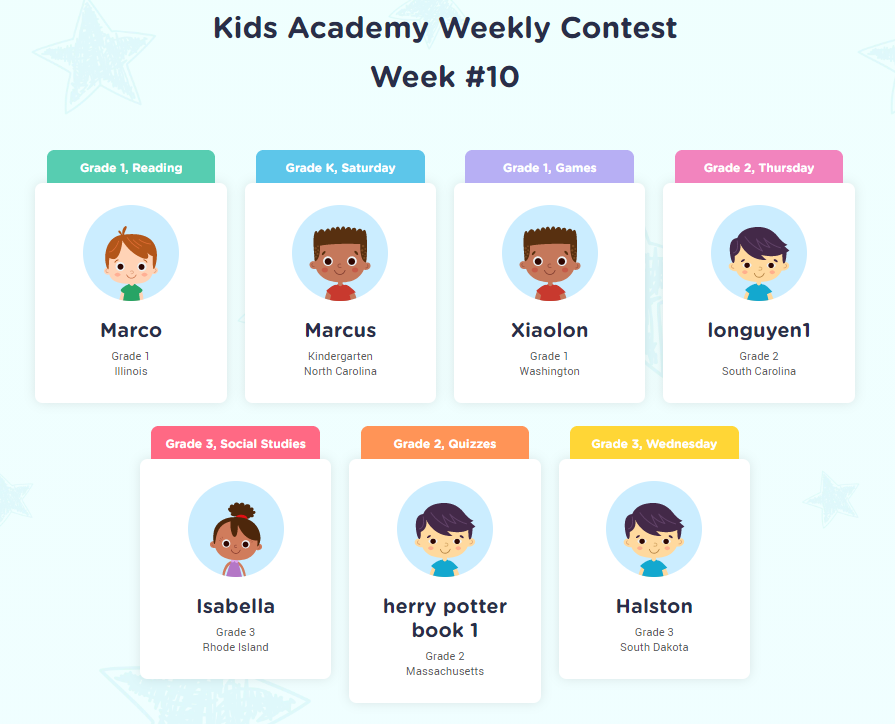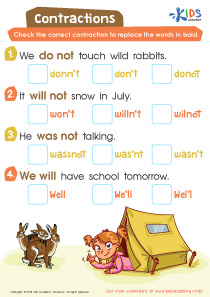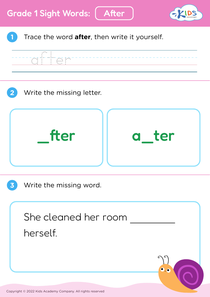Tracing Shapes worksheets activities for Grade 1
8 filtered results
-
From - To
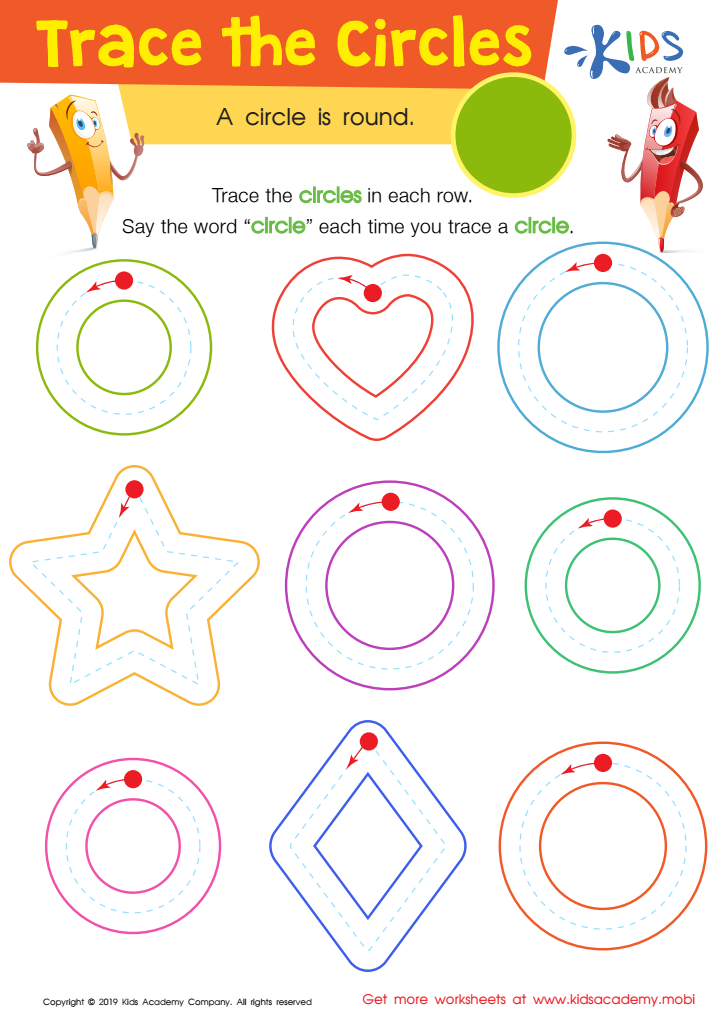

Trace The Circles Worksheet
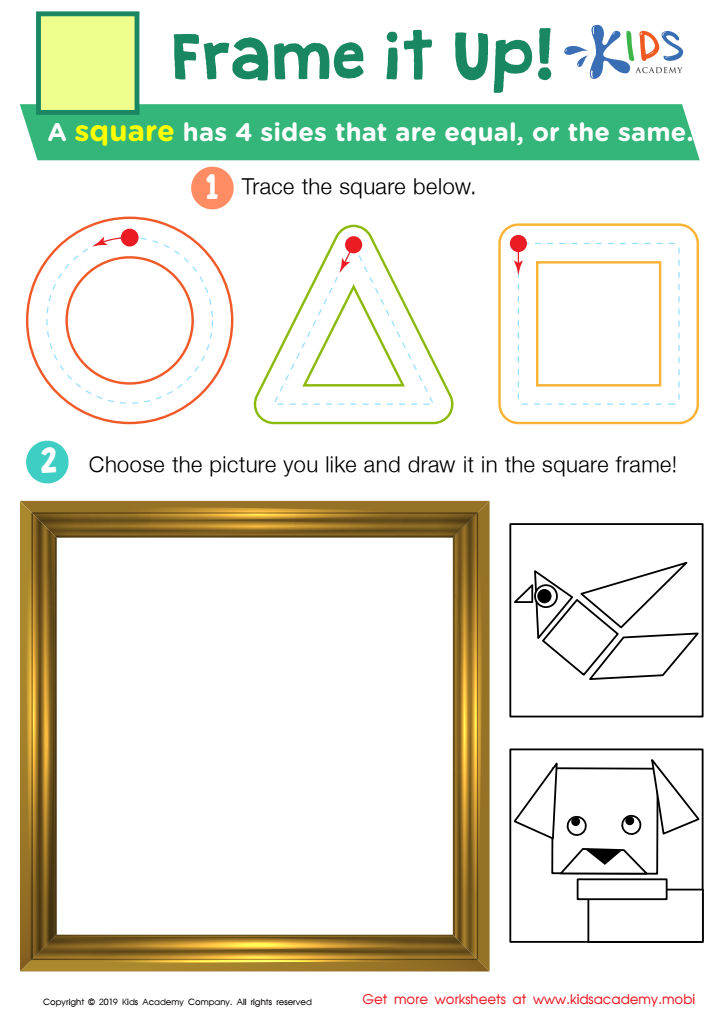

Frame it Up Worksheet
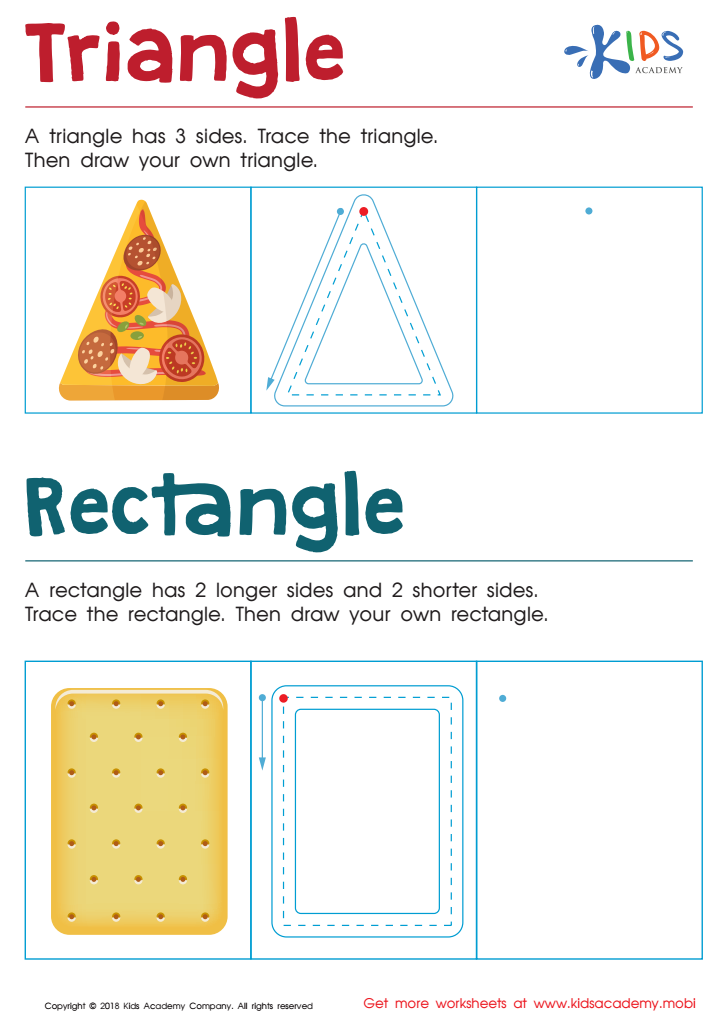

Triangle Rectangle Worksheet
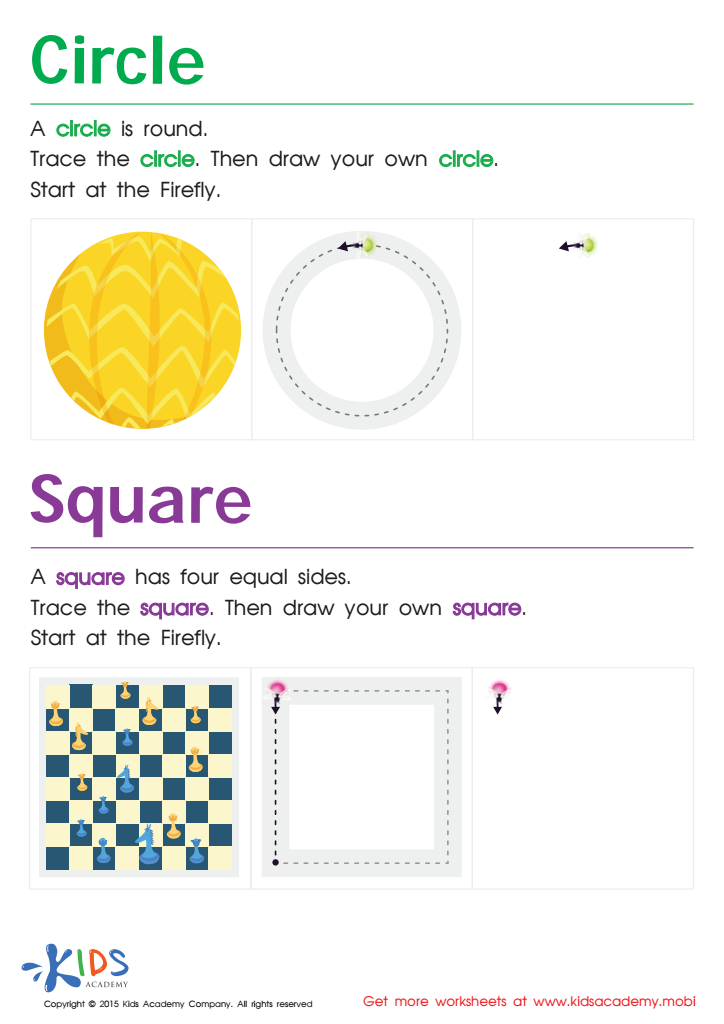

Trace And Draw a Circle And a Square Worksheet
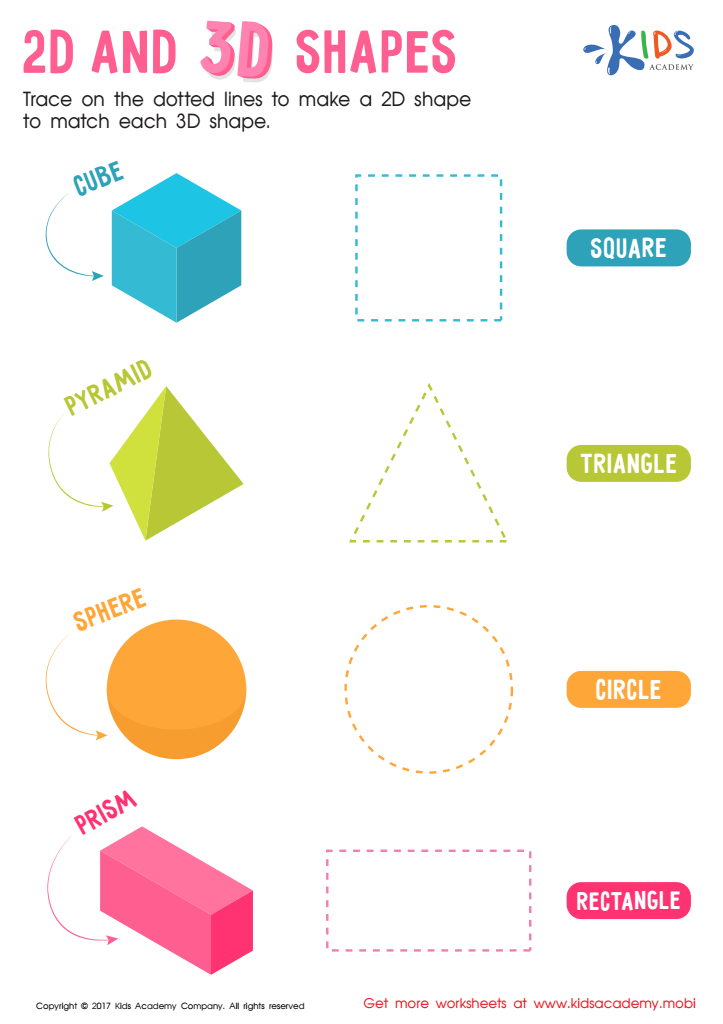

2D and 3D Shapes Worksheet
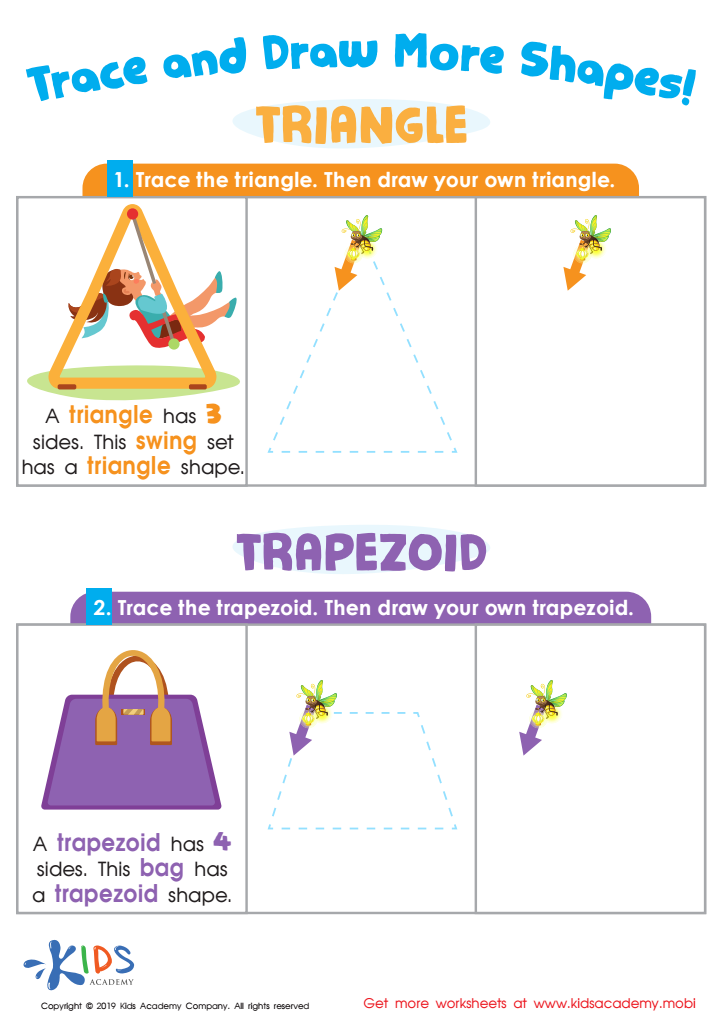

Trace and Draw More Shapes Worksheet
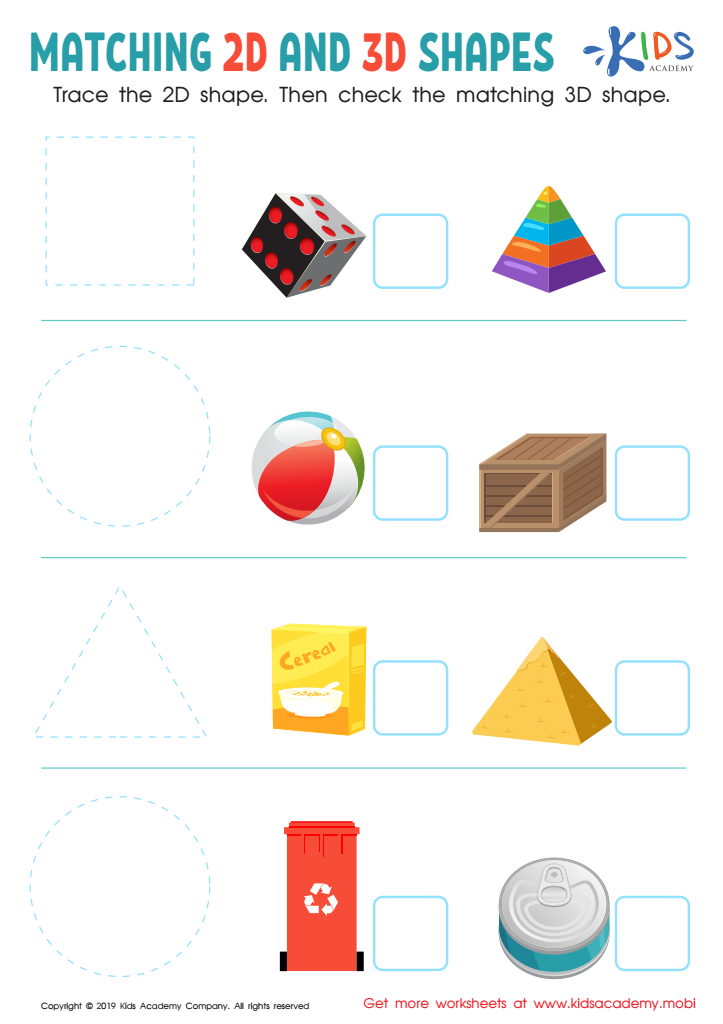

Matching 2D and 3D Shapes Worksheet
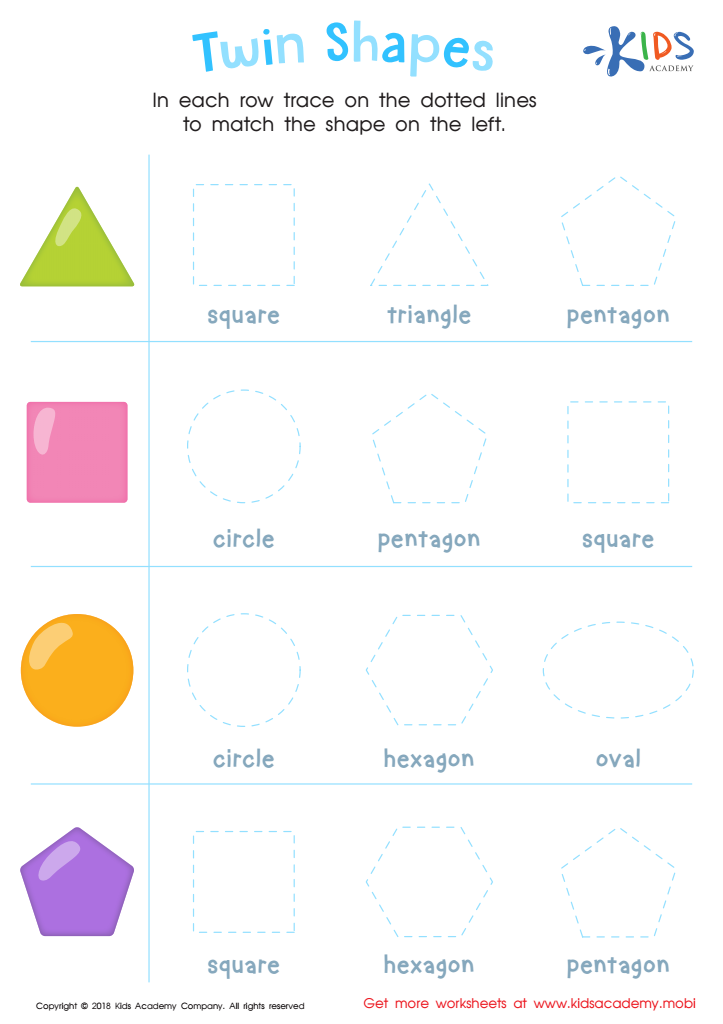

Twin Shapes Dot-to-Dot Worksheet
Tracing Shapes worksheets activities for Grade 1 offer a foundational step for young learners in their journey through the fascinating world of geometry and spatial understanding. These carefully designed worksheets serve multiple purposes and are instrumental in enhancing a child’s developmental milestones in various areas.
Firstly, Tracing Shapes worksheets activities for Grade 1 help in refining fine motor skills. The action of tracing shapes requires control, precision, and coordination of the hand and eye, which are critical skills not just for writing but for numerous daily activities. As children trace over circles, squares, triangles, and more, they strengthen their hand muscles and improve their grip and control over writing instruments, preparing them for more complex writing tasks in the future.
Furthermore, these tracing activities introduce young learners to basic geometric concepts in a fun and engaging manner. By tracing different shapes, children start recognizing and naming them, which is a key component of their mathematical foundation. This early exposure to geometry aids in developing spatial awareness, an ability to understand how shapes and objects relate to each other in space, which is crucial not only in math but in daily life situations.
Additionally, Tracing Shapes worksheets activities for Grade 1 enhance cognitive skills. As children focus on following the lines and curves of each shape, they are also learning to concentrate and pay attention to detail. This practice of focused attention is beneficial across all areas of learning and helps in improving overall academic performance.
Moreover, these activities can boost confidence. Completing a worksheet provides a sense of accomplishment. As children master the skill of tracing shapes, their confidence in their abilities grows, encouraging them to embrace more challenging tasks with enthusiasm.
In conclusion, Tracing Shapes worksheets activities for Grade 1 are more than just a simple exercise. They lay the groundwork for developing essential fine motor skills, introduce fundamental mathematical concepts, improve cognitive abilities, and build confidence, making them an invaluable tool in the early education curriculum.

 Assign to the classroom
Assign to the classroom
